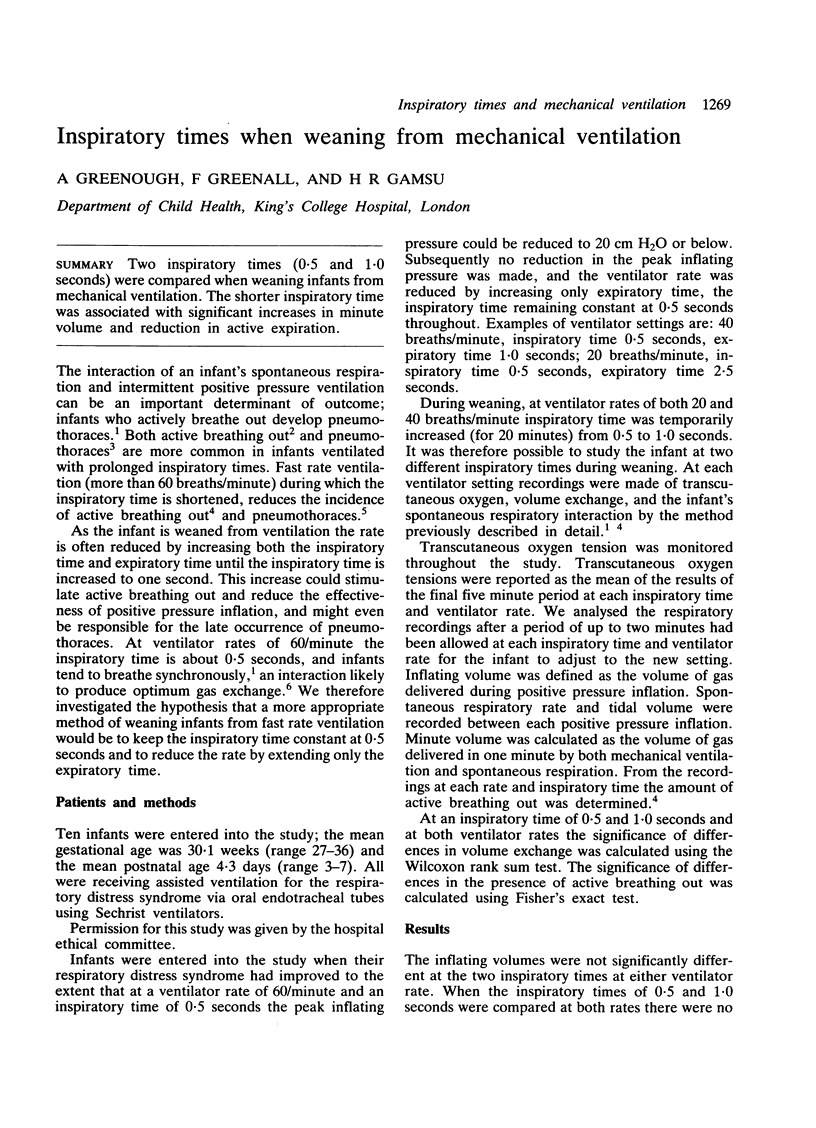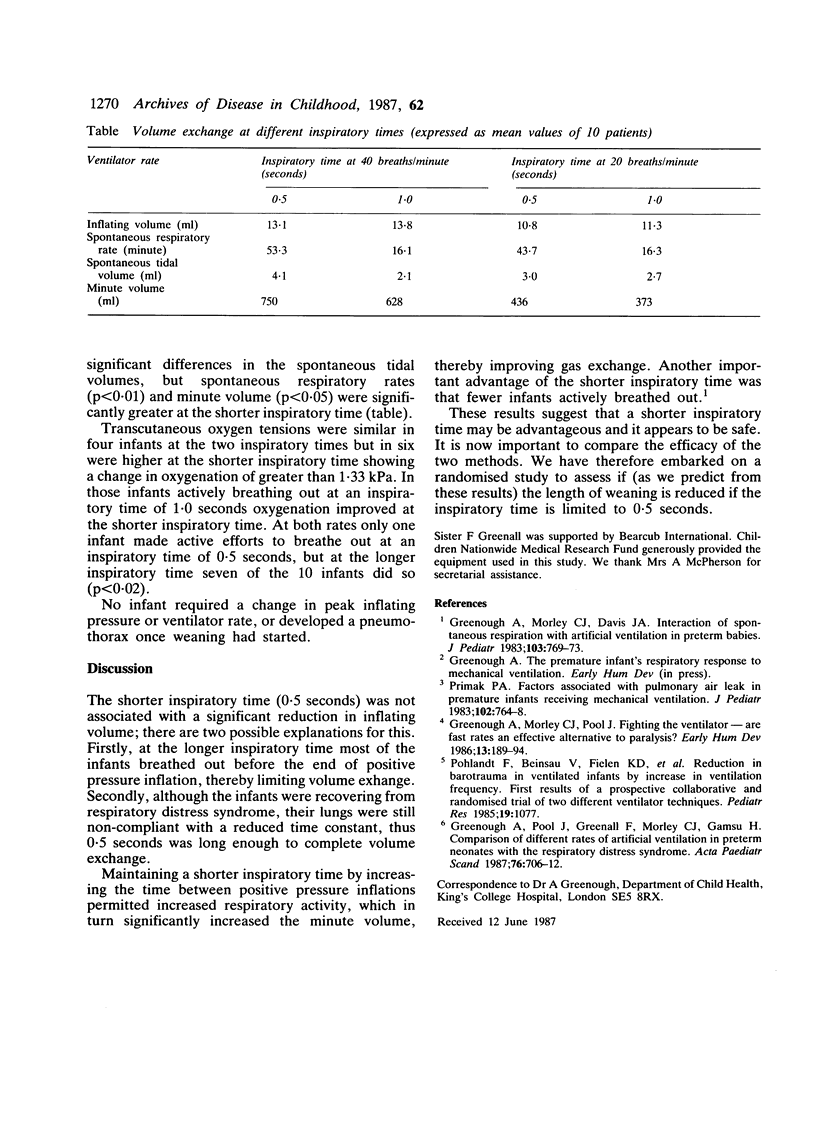Abstract
Two inspiratory times (0.5 and 1.0 seconds) were compared when weaning infants from mechanical ventilation. The shorter inspiratory time was associated with significant increases in minute volume and reduction in active expiration.
Full text
PDF

Selected References
These references are in PubMed. This may not be the complete list of references from this article.
- Greenough A., Morley C. J., Pool J. Fighting the ventilator--are fast rates an effective alternative to paralysis? Early Hum Dev. 1986 Apr;13(2):189–194. doi: 10.1016/0378-3782(86)90007-1. [DOI] [PubMed] [Google Scholar]
- Greenough A., Morley C., Davis J. Interaction of spontaneous respiration with artificial ventilation in preterm babies. J Pediatr. 1983 Nov;103(5):769–773. doi: 10.1016/s0022-3476(83)80483-1. [DOI] [PubMed] [Google Scholar]
- Greenough A., Pool J., Greenall F., Morley C., Gamsu H. Comparison of different rates of artificial ventilation in preterm neonates with respiratory distress syndrome. Acta Paediatr Scand. 1987 Sep;76(5):706–712. doi: 10.1111/j.1651-2227.1987.tb10553.x. [DOI] [PubMed] [Google Scholar]
- Primhak R. A. Factors associated with pulmonary air leak in premature infants receiving mechanical ventilation. J Pediatr. 1983 May;102(5):764–768. doi: 10.1016/s0022-3476(83)80254-6. [DOI] [PubMed] [Google Scholar]


